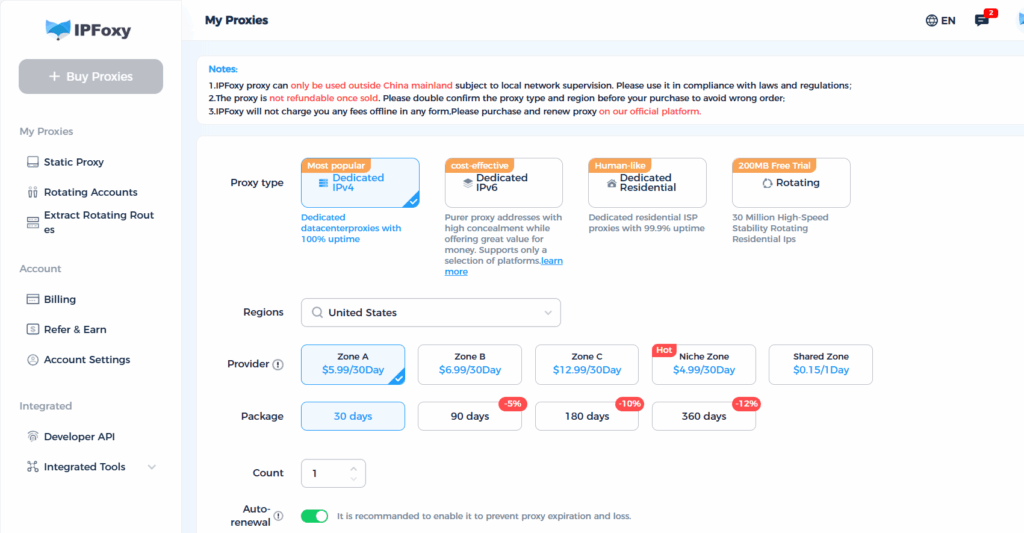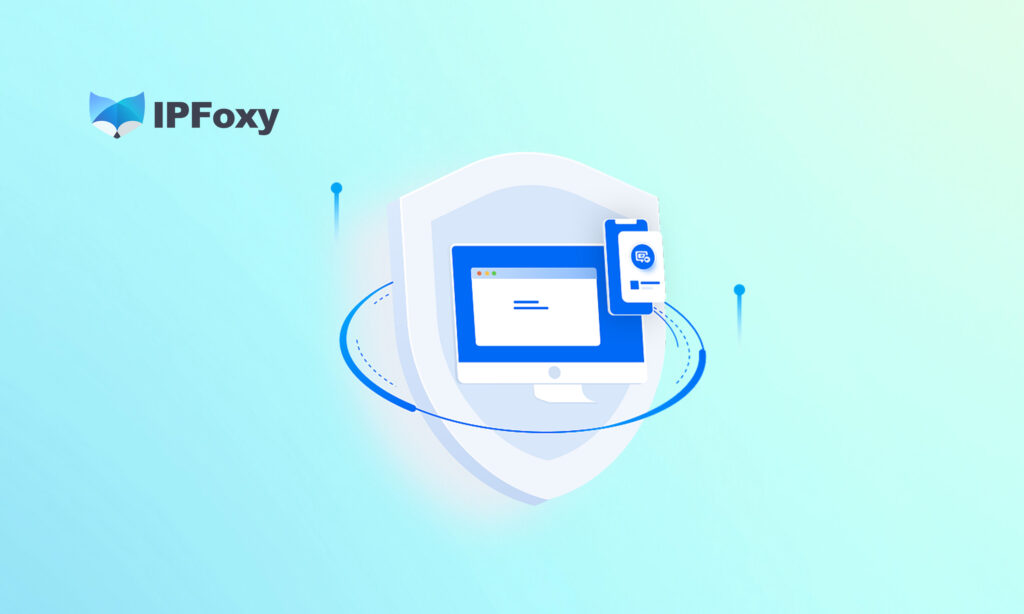Are You Confused About How to Choose the Right Type of IP Address for Your Business Needs?
When faced with dynamic IPs, static IPs, and datacenter IPs, do you understand how each might impact your online business? In the field of e-commerce, choosing the right IP type is crucial to business success. Dynamic, static, and datacenter IPs each have unique features and application scenarios. In this article, we will take a deep dive into the characteristics of each IP type and provide a guide on how to choose the most suitable one.
I. Definitions and Pros & Cons of the Three IP Types
1. Dynamic IP
A dynamic IP address is assigned by an Internet Service Provider (ISP) dynamically, meaning you may receive a new IP address each time you connect to the internet. This type of IP address is suitable for most households and individual users, as they generally do not need to provide external services and it’s more cost-effective.
(1) Advantages:
- Easy to manage: No manual configuration is required.
- High security: Constant IP changes make it harder for attackers to exploit known IPs.
- Cost-effective: No need to purchase or rent a fixed IP address.
(2) Disadvantages:
- Reconfiguration required: Every time the IP changes, related applications may need reconfiguration.
- Limited remote access: Constantly changing IPs make remote connections more difficult.
- Not suitable for hosting: Servers generally need a fixed IP address to ensure stability and accessibility.
2. Static IP
A static IP address is permanently assigned and does not change with each connection. This type of IP is suitable for scenarios requiring a stable network connection and remote access, such as enterprise servers or remote work.
(1) Advantages:
- Convenient for remote access: The IP address remains fixed.
- Ideal for servers: Servers require a stable network identity.
- Easy to manage: Since the IP doesn’t change, it can be easily found by other devices or systems.
(2) Disadvantages:
- Higher cost: Requires purchasing or renting a fixed IP address.
- Lower security: Fixed IPs are easier for attackers to target.
- Less flexibility: Static IPs cannot easily adapt to changes in the network environment.
3. Datacenter IP
Datacenter IPs are typically used for hosting websites, applications, databases, and other online services. These IPs are usually static and come with high bandwidth, stability, and security.
(1) Advantages:
- High speed and stability: Ideal for large-scale data processing and frequent requests.
- Strong security: Data centers are equipped with advanced security measures.
- Global coverage: Many datacenter IP providers operate multiple facilities worldwide for fast global access.
(2) Disadvantages:
- Higher cost: Requires payment for datacenter hosting services.
- Easily identifiable: May be restricted or flagged by certain websites or services.
II. How to Choose
Choosing the right IP type is crucial for cross-border e-commerce, as it directly affects business stability, cost, security, and scalability. The following guide will help you choose between dynamic, static, and datacenter IPs:
1. Define Your Business Needs
- Do you need to change IPs frequently?
If yes, dynamic IPs may be the best choice, as they change with each connection. - Do you need stable network services?
If your business relies on consistent connectivity — such as an online store or server hosting — static IPs are better. - Do you need high-performance networking?
For data-intensive or high-traffic operations, datacenter IPs are ideal.
I’ve personally used IPFoxy, which provides clean, global IPs and offers various types including datacenter IPs, making my cross-border business operations much more convenient.

2. Consider Cost
- Is your budget limited?
Dynamic IPs are generally the most affordable option. - Are you willing to pay more for stability and security?
Static and datacenter IPs are more expensive but offer additional reliability and safety.
3. Evaluate Security Requirements
- Does your business require high security?
Static and datacenter IPs are more secure since they don’t change frequently, allowing for easier deployment of security measures.
4. Performance and Speed
- Do you have specific speed or performance requirements?
Datacenter IPs typically offer the fastest speeds and highest performance levels.
III. Conclusion
In summary, choosing the right type of IP address should be based on your specific business needs, budget, security requirements, and long-term strategy. By carefully evaluating these factors, you can select the most suitable IP type for your cross-border e-commerce business.


